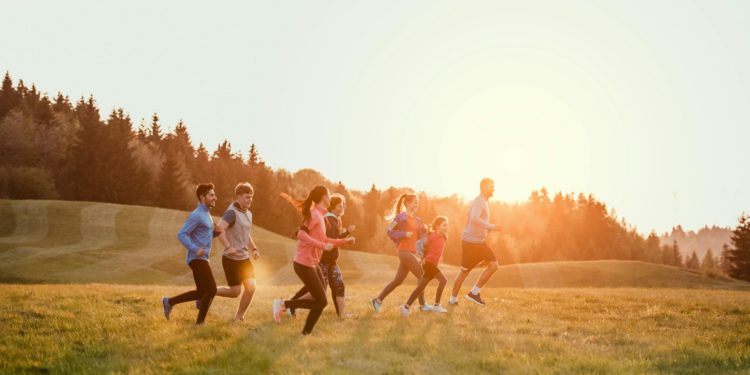Improving the general welfare of people and communities depends greatly on community sports. Through encouraging physical fitness, mental health, and social bonds, these events provide a dynamic atmosphere where participants may flourish. Participating in local sports enhances personal health advantages like stress release and better cardiovascular fitness and fosters friendship and affinity among many different groups. The good effects go beyond the field of play as people gather to encourage one another and share events, strengthening the social fabric of society and motivating a group’s dedication to health and fitness.
Health benefits
Participating in community sports, including mass participation sporting events, offers a wide range of health benefits that greatly enhance physical and emotional wellness. Regular involvement lowers the risk of chronic diseases like diabetes and hypertension, improves muscular strength and cardiovascular fitness, and helps with weight control. Beyond the obvious advantages, these pursuits strengthen social links and enhance mental health by reducing stress and anxiety, offering a whole approach to well-being that appeals to people of all ages.
Social interaction
Engaging in local sports gives people great chances to interact and build connections within their neighbourhoods. When they gather to train, compete, or just enjoy leisure activities, people develop camaraderie that spans age and background. This social involvement not only improves the pleasure of the activity itself but also creates a supportive atmosphere where members encourage one another, exchange experiences, and develop a feeling of belonging that may be especially helpful in countering emotions of isolation.
Sense of belonging
Participating in community sports teams gives members a sense of identification and inclusion. People who participate in common objectives and experiences become close to their teams and the larger society, promoting loyalty and pride. This group attitude not only improves individual drive but also strengthens social relationships, fostering an atmosphere where everyone feels appreciated and connected. Such a feeling of belonging may be especially motivating as it helps people to support one another both on and off the pitch and to help their local communities.
Stress relief
Physical activities in a group environment provide a good release of tension and stress. Exercise and social engagement produce endorphins, naturally occurring mood boosters, enabling people to relax and escape everyday stresses. Furthermore, offering emotional support, the friendship developed through the same sporting experiences helps players discuss their difficulties and victories in a laid-back environment. This all-encompassing approach not only encourages rest but also builds resilience by arming people with coping mechanisms to handle the responsibilities of daily life more successfully.
Skill development
Participating in community sports allows people to improve many athletic and social abilities. Regular practice and competition help players improve their physical skills, pick up fresh approaches, and become strategically minded. Beyond the field of play, participation in team dynamics develops vital life skills like communication, leadership, and collaboration. This always-learning atmosphere fosters confidence and personal development, enabling participants to create and reach objectives while appreciating the road to advancement.
Community impact
The emergence of community sports projects is mostly responsible for improving local cohesiveness and inspiring pride among the people. Often including several organisations, these events promote cooperation and mutual support while tackling social concerns like young involvement and health awareness. Participating in or supporting local teams and events helps people to bring the vitality of their areas alive, therefore fostering a good knock-on effect that can result in more volunteer work, local sponsorship, and stronger community identification. Along with improving the quality of life for participants, this group effort enhances the complete fabric of society.
The lasting impact of community sports on health and social unity
Participating in community sports provides a wide range of advantages beyond physical health that enhance members’ lives and help build stronger, more bonded communities. Combining physical exercise, socialising, and skill development improves personal wellness, member support, and a feeling of belonging. People who gather to share experiences and pursue shared objectives help to create a lively community that advances pride, resilience, and teamwork. In the end, the benefits of community sports include better health, stronger social bonds, and a shared dedication to elevating one another, producing a better and more unified society.


![7 Best POS Software in the UK [2026 Edition]](https://todaynews.co.uk/wp-content/uploads/2026/02/7-Best-POS-Software-in-the-UK-2026-Edition-360x180.png)








































































